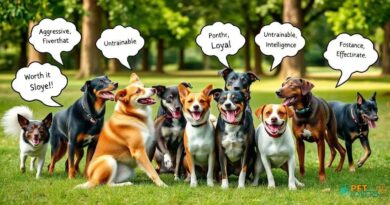What is Lifestyle adaptation
What is Lifestyle Adaptation?
Lifestyle adaptation refers to the process of adjusting one’s daily habits and routines to better align with personal needs, preferences, and circumstances. This concept is particularly relevant for dog owners who seek to create a harmonious living environment for both themselves and their pets. By understanding the nuances of lifestyle adaptation, dog owners can enhance their quality of life while ensuring their furry companions thrive.
The Importance of Lifestyle Adaptation for Dog Owners
For dog owners, lifestyle adaptation is crucial as it directly impacts the well-being of their pets. Adapting one’s lifestyle can involve changes in daily schedules, living spaces, and even social interactions. By recognizing the needs of their dogs, owners can create a more fulfilling and balanced life that benefits both parties. This adaptation can lead to improved mental and physical health for both the owner and the dog.
Identifying Key Areas for Lifestyle Adaptation
When considering lifestyle adaptation, it’s essential to identify key areas that may require change. These areas can include exercise routines, feeding schedules, and socialization opportunities for dogs. By evaluating these aspects, dog owners can make informed decisions that cater to their pets’ needs while also fitting into their own lifestyles. This holistic approach ensures that both the owner and the dog enjoy a better quality of life.
Creating a Dog-Friendly Home Environment
One significant aspect of lifestyle adaptation is creating a dog-friendly home environment. This can involve making physical adjustments to living spaces, such as providing designated areas for eating, sleeping, and playing. Additionally, ensuring that the home is safe and free from hazards is paramount. A well-adapted living space not only benefits the dog but also enhances the owner’s peace of mind.
Adjusting Daily Routines for Better Pet Care
Adjusting daily routines is another vital component of lifestyle adaptation. Dog owners may need to modify their schedules to accommodate regular walks, playtime, and training sessions. By prioritizing these activities, owners can foster a stronger bond with their pets while promoting their dogs’ physical and mental well-being. This commitment to routine adjustment can lead to a happier and healthier dog.
Socialization and Lifestyle Adaptation
Socialization plays a crucial role in a dog’s development and overall happiness. Lifestyle adaptation may involve seeking out opportunities for dogs to interact with other pets and people. This can include visits to dog parks, participation in training classes, or attending community events. By incorporating socialization into their lifestyle, dog owners can help their pets develop essential skills and reduce behavioral issues.
Nutrition and Lifestyle Adaptation
Nutrition is a fundamental aspect of a dog’s health, and lifestyle adaptation often includes reevaluating feeding practices. Dog owners may need to adjust their pets’ diets based on age, activity level, and health conditions. By prioritizing proper nutrition, owners can ensure their dogs receive the necessary nutrients for optimal health, which is a critical component of lifestyle adaptation.
Emotional Well-Being and Lifestyle Adaptation
The emotional well-being of dogs is equally important in the context of lifestyle adaptation. Owners should consider their dogs’ mental health by providing enrichment activities, such as puzzle toys, training exercises, and interactive play. By addressing the emotional needs of their pets, owners can create a more balanced lifestyle that promotes happiness and reduces stress for both themselves and their dogs.
Long-Term Benefits of Lifestyle Adaptation
Embracing lifestyle adaptation can lead to long-term benefits for both dog owners and their pets. By making conscious changes to daily habits and routines, owners can foster a more fulfilling relationship with their dogs. This proactive approach not only enhances the quality of life for pets but also contributes to the overall happiness and well-being of the owner, creating a harmonious living environment.



